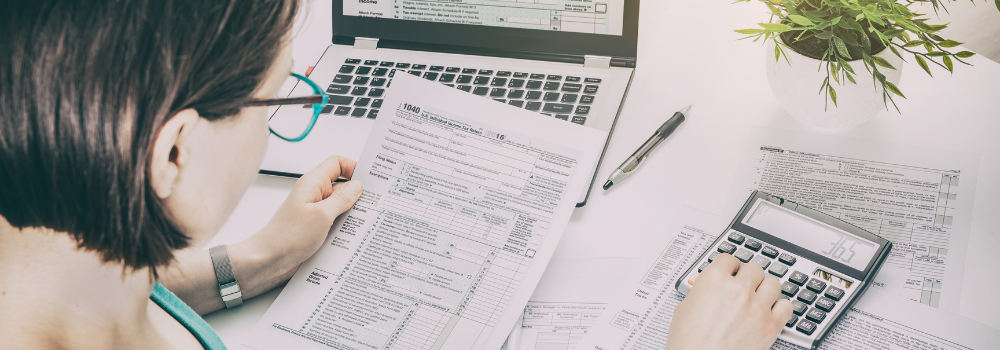
10 Tips to Secure Personal Data During Tax Season
In today’s world, it’s critical to keep track of your personal finances and records both digital and paper. The busy tax season is a great time to tidy up your paperwork and feel prepared for the year ahead. We’ve compiled a list of easy tasks you can undertake to keep your data safe now and throughout the year.
1. Prepare your tax returns professionally.
If you have to save time and hassle, a tax professional is your best resource. Tax professionals can help you take advantage of a number of tax breaks you may not have thought of. They’re also a great resource for asking how your personal information should be handled. Make sure you find a reputable tax preparer or accountant who will be able to keep your information confidential.
2. Use a secure online option.
Did you know the internet utilizes tax options that both speed up the refund process and can be more secure than using mail? When requesting W2’S and 1099’s, ask your employer or financial institution to utilize an online option to get you your paperwork. This option is generally quicker and more reliable.
3. What’s the best way to get my tax return to the IRS?
The most efficient way to send in your taxes? Electronically. When it’s time to file, this will be the most seamless and secure option available. If you’d prefer your documents to be mailed, ensure they’re mailed certified so you can keep track of where and when they were delivered.
4. If my tax return was denied, what’s the next step?
There are several reasons why your tax return might be rejected. The IRS will usually tell you explicitly what the reason was for the denial. If you’re told a return has already been filed in your name, or another reason deemed suspicious… you’ll want to act promptly. To remedy the situation, the IRS has set up an identity theft website, which you can visit here: https://www.irs.gov/identity-theft-central
5. Monitor your credit.
Using a credit monitoring service can be helpful for a variety of reasons. Credit monitoring can help you breathe easier when it comes to documents lost in the mail or mail that appears to have been previously opened. Stay vigilant when it comes to your credit and routinely go over your finances to ensure no fraudulent accounts have been opened under your name.
6. Some of my personal data is outdated. Is that okay?
Maintaining the accuracy of your personal information is paramount. Keep important documents close by and review them once or twice annually. Make sure your employer and financial institutions have your up-to-date address and phone number. Should they need to contact you regarding a personal matter or send you important paperwork, you’ll want this information to be correct.
7. Create a document checklist.
When busy and dealing with time-sensitive information, it’s never a bad idea to create a checklist! During tax season especially, you’ll likely be receiving copious amounts of paperwork and information from your workplace, banks, etc. If you create a list of what you’ll need to receive to file taxes before the season hits, you’ll be in great shape.
8. Keep your paperwork in a safe place.
When it comes to paper storage at home, be cautious. Keep your documents organized and tucked away in a safe place until it’s time to sort through and file your taxes. Maintain the same level of diligence after you’ve completed your tax return so you can easily spot missing documents and have peace of mind that your personal information is safe.
9. Remember upcoming deadlines.
Income-related records must be postmarked by January 31st. So, keeping this in mind, if months later you’re still waiting for a document to arrive, you’ll want to check on this promptly. Call to ensure your documents were indeed sent and confirm the address in which they were sent to.
10. Utilize strong passwords.
Simple passwords make it easier for you to remember, yes. However, it also simplifies the process for criminals. A very important way to keep your information secure is to make sure your password is also secure. Try to mix numbers with characters, capitals with lowercase, etc. You can also use a secure password-saving app, such as LastPass to keep your password organized and up to date.
